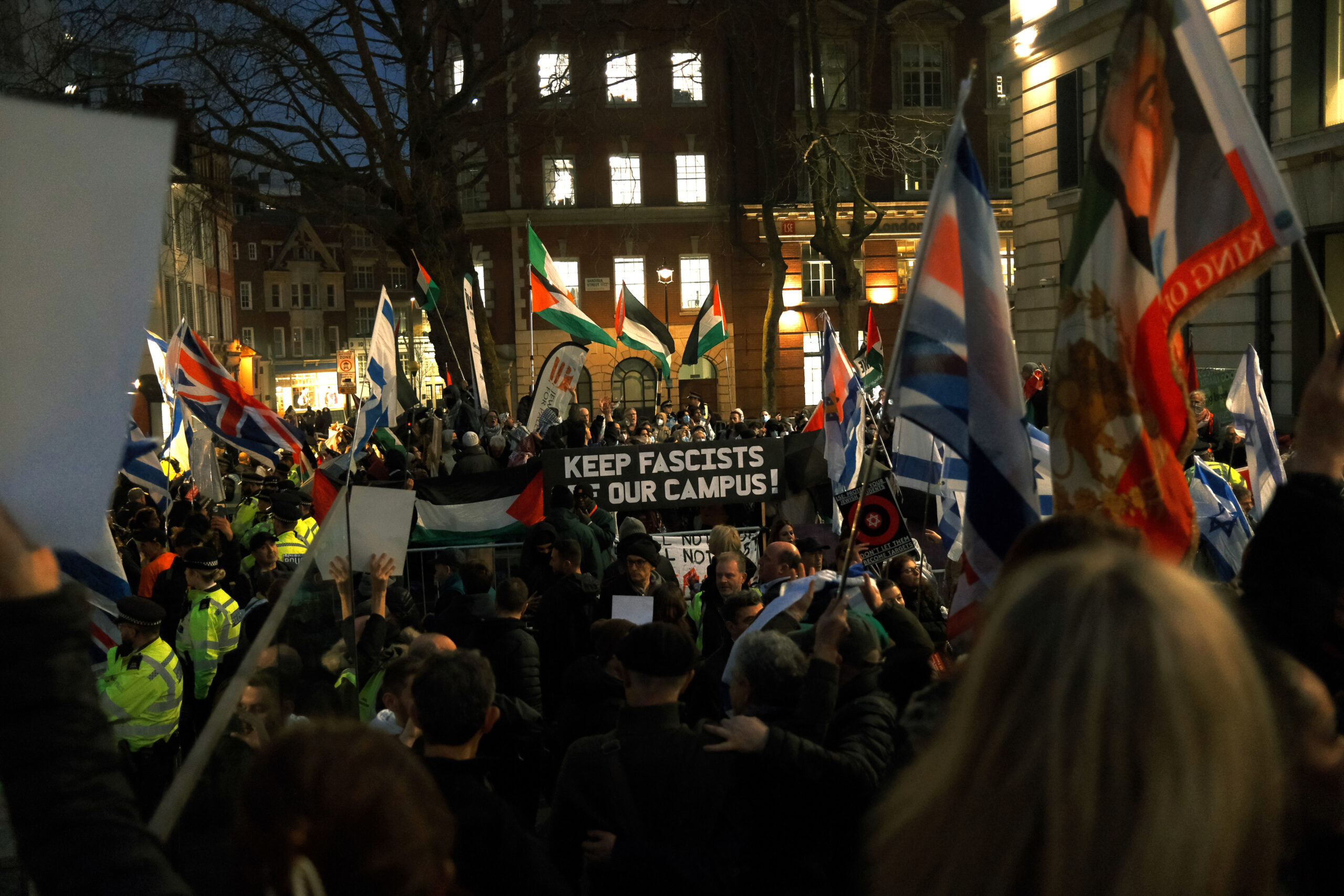Staff writer Fernando Miranda España explains the potential consequences of the Houthi attacks on global commerce in the Red Sea.
In the Red Sea’s volatile waters, the Israeli-Hamas conflict, the Houthis and global commerce converge in a geopolitical maelstrom. The Houthis, who rose to prominence in the 2010s, have perpetuated multiple attacks on vessels in the Red Sea following their threats against Israel. As tensions heighten, and with the undergoing UK/US-led retaliation against the Houthis, one begs the question: How did we get here? And more importantly, What will come next?
How did we get here? The Houthis, the Yemen civil war and Iran
To understand the intricacies of what is currently happening in the Red Sea, we must understand where the Houthis come from. While the origin of this military group traces back to the 1980s, they notoriously rose to fame with the beginning of Yemen’s Civil War, a conflict that they sprung into action by taking control of Sana’a, Yemen’s capital, in 2014.

During the many years in which the conflict has been raging, it has been stated that behind the Houthis one could find the hand of Iran, a belief that has been recently reinforced by the presence of Hezbollah leaders on Houthi territories, and the fact that the military group’s leaders have been seen travelling to Iran for education and funding.
While we can argue that Iran’s main goal behind financing and training the military group was originally focused on the latter’s proximity to Saudi Arabia, the area that is currently under Houthi control has come with a feature that is now a crucial element on the Red Sea predicament: the Bab al-Mandeb strait

The stepstone of Global Economy: The Red Sea and the Bab-al-Mandab Strait
The Red Sea is not only a gateway for around 12% of the global trade of the world, but it is also one of the world’s key maritime choke points for both Europe and Asia. Without the route through the Bab-al-Mandab Strait and the Suez Canal, the shipping companies would have to face many more days of travel, entailing added fuel expenses and crew wages.
While the importance of the Red Sea and its points of entrance is an undeniable truth, it is also true that the area surrounding the Bab-al-Mandab Strait has been plagued with civil wars and piracy for more than a decade. With this in mind, it’s no surprise that keeping the safety of the 23 kilometres-wide strait has been a continual worry of many major economic powers.
To ensure the well-being of the Red Sea trade, countries such as the US, France, China, Spain and Japan have set up bases in Djibouti, aiming to hold control on the western side of the strait. The eastern flank, however, as we can infer, is another story, as it is currently under the watch of the Houthis. But, How does the strait come into play with the Israeli-Hamas conflict?
Vessels, Drones and Missiles
In the days after the beginning of the Israeli-Hamas conflict, the military group declared their support for the Palestinian cause in the Gaza Strip. However, it wouldn’t be until November that the Houthis’s leader, Abdulmalik al-Houthi, stated that:
“Our eyes are open to constantly monitor and search for any Israeli ship in the Red Sea, especially in Bab al-Mandab, and near Yemeni regional waters,
Abdulmalik al-Houthi
And so, starting on November 19th and continuing throughout the last few months, the military group has used this advantageous position for the deployment of drones and the launching of missiles (provided by Iran) against any vessel that held connections to Israel, independently of how little it could seem. Such was the case with “Unity Explorer”, a vessel whose only connection to Israel could be found in one of the companies’ officers: Dan David Ungar, an Israel resident.
What have been the effects?
This situation has led to a severe increase in the premiums that insurance companies charge to the ships whose routes passed through the Red Sea. Consequently, this prompted many of the shipping companies that used the Red Sea for their trade to stay as far away as possible from it, rerouting around the Cape of Good Hope, in South Africa, instead.
The diversion around the Cape of Good Hope has led to a broad escalation in the overall average shipping costs globally, surging in certain cases by a concerning 250%. This gradual rise, coupled with the ongoing shipping delays, has the potential to contribute to another significant worldwide inflation, putting additional strain on consumers.
On a smaller scale, Egypt, whose economy heavily relies on the tolls from the Suez Canal, is bearing the brunt of this situation. With such a sudden break in one of their main revenue streams (which accounts for 10% of its national budget), the tensions in Egypt are quickly rising and straining the relations between the latter and Israel.
Then, we also need to take into account the situations of Eritrea, Sudan and Jordan. Given the current situation, these countries have virtually become landlocked states, bringing a halt to the crucial maritime trading on which their economies were supported. This predicament does not stop with them, as an increase in instability in those countries could aggravate the ongoing conflicts of neighbouring countries such as Somalia and Ethiopia.
But, what about Israel, the main objective of the Houthis? At the end of the day, while the attacks have brought an almost complete closure of the Red Sea port of Eilat, its importance is relatively small, as only 5% of Israel’s imports come through it. However, we can make the case that the Houthis efforts are not necessarily meant to push the Jewish state against the wall on this particular frontier. In fact, there exists a more concerning type of pressure pressure that we want to highlight in this feature: international pressure.
What comes next?
The Houthis have vowed to not stop their attacks unless Israel decides to put an end to the conflict. Thus, while the recent efforts of the US and UK militaries (along with Greece and Denmark) have tried to solve the conflict with the use of force against the military group, we can argue that the Houthis’s objective (and Iran’s), besides reinforcing their support in the Middle East as many argue, is to increase western pressures on Israel to the end the conflict and ensure Hamas’ survival.
On this note, Benjamin Netanyahu recently restated that, despite the rising pressures, the world should expect this to be a long war. However, the longer this conflict goes on, the more the worldwide trade will be strained. And the longer the Red Sea is incommunicated, the more tension will pile on in the mentioned African countries. So, if things continue like this, we can expect the popularisation of narratives which pin all of this misfortune and pain on an Israeli government obsessed with crashing Hamas.
The world may be able to withstand this situation for a couple of months, but it most certainly won’t be tolerated for long. Thus, we should not be surprised to see an increase in the military efforts showcased by the US/UK in the coming weeks to find an easy escape from this conundrum. However, such a ramp-up in military activities would entail heavier expenses than the ones right now, which would also not be easily maintained for long.
Beyond this point, only time will tell what happens. All we can do is watch.















